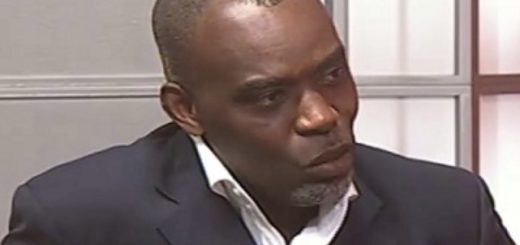Hidden Wounds Behind Nigeria’s Online Hostility:
Many have suffered in silence for too long. Some have even fallen victim to the emotional toll of online bullying, with devastating consequences that ripple through lives and families. But what truly fuels this hostility? And how can we begin to heal the wounds that are secretly tearing us apart?
The Deepest Roots of Our Pain
To understand Nigeria’s online hostility, we must look at what’s happening behind closed doors, in our homes and our hearts. For many, the anger, bitterness, resentment and frustration they unleash online are just symptoms of deeper, unspoken issues from homes and unhealed relationships.
Family Battles Hidden Behind Smiles
- Many Nigerian mothers carry heaviness in their hearts, burdened by unhappy marriages they dare not complain about, and how society has conditioned them. They wear a brave face, pretending everything is fine, but inside, resentment simmers. That bitterness seeps into their interactions with their children, others and eventually finds an outlet online.
- Fathers, overwhelmed by stress, unrealistic expectations, frustration, or a sense of unfulfillment, often retreat into silence or external distractions. They seek solace elsewhere or distance themselves from their families in search of peace—peace that is often elusive.
- Children grow up witnessing these struggles—parents’ pain, unspoken misunderstandings, bitterness, broken relationships. They learn early that life is full of hidden suffering and unmet expectations, and they will eventually find their ways out in different ways online.
Societal Pressures and the Mask of Happiness
- The pressure to succeed, marry, and appear perfect in the eyes of society creates a constant state of stress and anxiety.
- Many Nigerians hide pain behind a facade of happiness, laughing in public or posting cheerful pictures, while inside, turmoil roars. When frustrations build up, they find an outlet in hateful speech or online abuse, often directed at strangers because they lack outlets for their real pain.
The Toll on Our Hearts and Bodies
This deep-seated dissatisfaction doesn’t just stay inside; it spills out into our online interactions, turning social spaces into battlegrounds. The cost is high:
- Broken spirits: Chronic stress and bottled-up emotion can lead to depression, anxiety, and a sense of hopelessness.
- Emotional Pain: heartbreak, sadness, rejection, and betrayal can cause frustration and anger, which might be expressed through abusive language or resentment.
- Physical health: The toll manifests physically in hypertension, sleep disturbances, and other stress-related illnesses.
- Isolation and loneliness: Bitterness and hostility can push people away from genuine human connection, worsening feelings of loneliness and despair.
- Unmet Needs or Frustration: When emotional or material needs are unmet, like fitting into societal expectations, getting married, or having children, individuals without self-will, might lash out in anger or resentment.
A Heartfelt Call for Change
This is a moment for honest reflection—for all of us to look inward and ask: why are we so angry? Why do we hurt others online? The answer lies in addressing our internal struggles and choosing to heal.
Here’s how we can start:
1. Confront Our Inner Pain
- Be brave enough to acknowledge feelings of dissatisfaction, disappointment, and unhappiness. Seek support—therapy, counselling, or heartfelt conversations with loved ones—to process these emotions.
2. Heal in Our Families
- Create safe spaces at home where open, honest conversations are encouraged. Let’s listen more, judge less, and support each other’s struggles.
- Break the cycle of bitterness by forgiving and letting go of past hurts.
3. Change How We Interact Online
- Be conscious of the words we choose. Could kindness heal a wounded soul? Could understanding bridge divides?
- Use social media as a platform for empathy, uplifting, and positive change—not hatred.
4. Address Systemic Issues
- Advocate for better education, employment opportunities, and social support systems that give Nigerians hope and purpose.
- Support mental health awareness and community programs that promote emotional well-being.
Our Courage to Heal
Our pain, if left unspoken, will continue to poison our society. But if enough of us are willing to face our struggles, to show compassion and vulnerability, we can turn the tide.
Let’s remember that behind every angry comment or bitter complaint is someone crying out for connection, understanding, and peace. Nigeria’s strength lies in its resilience, its warmth, its capacity for love.
The journey toward a healthier, kinder Nigeria begins with each one of us. When we embrace our pains, support one another, and choose forgiveness over bitterness, we can transform our spaces—both online and offline—into places of hope, healing, and genuine happiness.
Together, we can heal the wounds that threaten to divide us and create a future worth fighting for. so our people will stop dying from bully.
Nigeria’s online hostility is a mirror reflecting a deeper societal malaise. By acknowledging the pain and dissatisfaction many Nigerians endure silently, we can begin to foster a culture of healing and understanding. It starts with each of us—being honest about our struggles, supporting each other, and working towards a future where happiness and peace replace bitterness and hostility.
Let us remember: Changing the narrative requires collective effort and genuine compassion. Only then can we build a healthier, more empathetic Nigeria—online and offline.
Possible solutions
A society that does not judge its citizens and allows individuals to express themselves freely—without fear of condemnation or discrimination—tends to foster a sense of peace and well-being among its people. Here’s why:
- Psychological Safety: When people are free from judgment, they feel safer and more accepted, reducing stress, anxiety, and feelings of shame or guilt. This atmosphere encourages authentic self-expression.
- Emotional Well-being: An environment of acceptance promotes confidence and self-esteem, which are crucial for mental health. Citizens are more likely to feel valued and respected.
- Reduced Conflict: Judging others can lead to misunderstanding, resentment, and conflict. By cultivating a non-judgmental society, conflicts are less likely to escalate, fostering social harmony.
- Encouragement of Diversity: When differences are celebrated rather than judged, a diverse society thrives, fostering innovation, creativity, and mutual respect.
- Community Support: Acceptance builds trust and stronger social bonds, creating a supportive community where individuals can grow and coexist peacefully.
However, achieving complete peace also depends on other factors like justice, equality, economic stability, and effective governance. But a non-judgmental, accepting social environment forms a critical foundation for peace and collective well-being.



